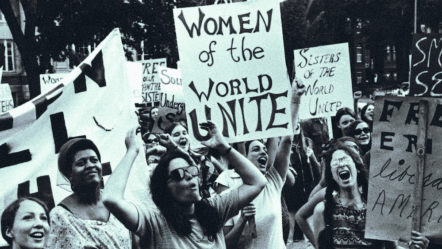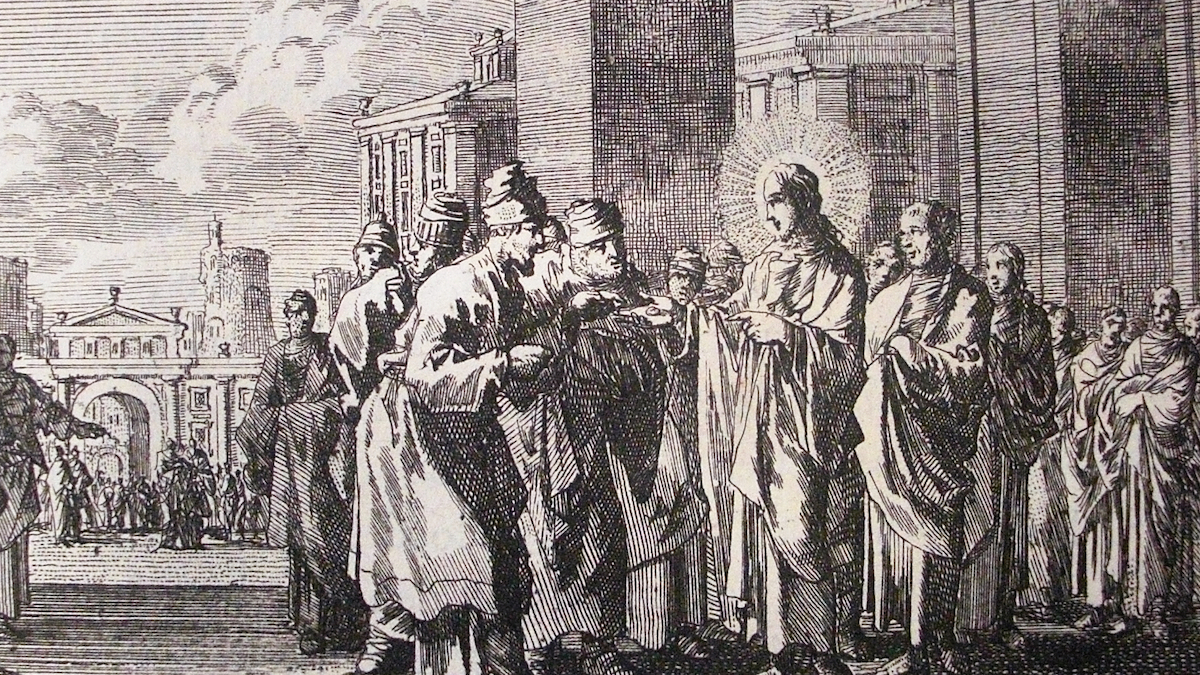If I say goodbye, the nation learns to move on. It outlives me when I’m gone.
George Washington, “Hamilton”
The only important work that most of us will do is raising our children.
George Washington’s bravery and humility mattered greatly in the founding of our country.
Jonas Salk saved many people with the polio vaccine.
Johann Sebastian Bach created music that expresses the beauty of God’s creation.
All of these achievements dwarf in comparison to the raising of a single saint. All the most important work on earth is to bring glory to God. Feminism convinced many women that only corporate work was important. Domestic work was given absolutely no value. Creating a home; encouraging the emotional, intellectual, and spiritual development of little people; caring for our husbands; and volunteer work were denigrated as unimportant, even stifling. It was more important to find oneself and have a fabulous career working for a giant corporation while hiring low-wage workers to complete the alleged drudgery of daily life.
Feminists failed to mention that most men don’t have fabulous careers. They have jobs. And now so do women. Most people don’t find meaning in the workplace. We find meaning in our faith and families. Yet now we find ourselves close to being Scandinavian in that staying at home to raise one’s children and tend our homes is not really tolerated.
Women were designed by God to raise young children. This does not at all undermine the important role that fathers play in the lives of their children. But the complementarity of the species shows us the way that our work is differentiated. Our Lord himself showed us this in two parables:
And he spoke to them this parable, saying: What man of you that hath an hundred sheep: and if he shall lose one of them, doth he not leave the ninety-nine in the desert, and go after that which was lost, until he find it? And when he hath found it, lay it upon his shoulders, rejoicing: And coming home, call together his friends and neighbours, saying to them: Rejoice with me, because I have found my sheep that was lost? I say to you, that even so there shall be joy in heaven upon one sinner that doth penance, more than upon ninety-nine just who need not penance. Or what woman having ten groats; if she lose one groat, doth not light a candle, and sweep the house, and seek diligently until she find it? And when she hath found it, call together her friends and neighbours, saying: Rejoice with me, because I have found the groat which I had lost. So I say to you, there shall be joy before the angels of God upon one sinner doing penance. (Luke 15:3-10)
Notice how beautiful Our Lord’s imagery is in these two parables. The man is in the desert of the work world with his sheep and hoists the found sheep to his strong shoulders. The woman is in a domestic setting and sweeps carefully and at length until her groat is found. Her work is hidden. His is public. Her work is domestic and sometimes seemingly endless. I have had people say to me that Jesus used this kind of imagery because he was “a product of his time.” They believe that if he had come now the shepherd would have become a soy boy and the woman a corporate mogul. Nonsense. Jesus is God. He was never particularly concerned with offending the sensibilities of those around him. He sought to highlight the Truth. He constantly pointed people toward worshipping the Father in right order. So when he shows us a truth within a truth about the Father’s love, we should heed both the story itself and the information within it.
I failed to understand this as a young woman. Even though I was a serious Christian I was seduced by the lies of feminism.
Vladimir Lenin was the first feminist. Actually, Satan was the first feminist. When Our Lady of Fatima said that Russia would spread her errors, she was including feminism in that statement. I read Ms. Magazine from the time I was 12 until I graduated from high school. What I read there hardly squared with what I read in the Bible and Tolstoy, but public school in the 1980s was a Godless hellscape and I found myself attracted to some of the writing there. The writings I liked best were those that talked about autonomy and being able to take care of ourselves. What I didn’t realize as an adolescent is that they were stoking the sinful selfish, prideful parts of me rather than talking back to them. They also did not understand how desperately I wanted to be a mother and how that work would define everything in my life.
I quit reading Ms. when I left for college in large part because it no longer resonated with the experience I was having. I have always been an optimist and I dislike grievance mongering and the overwhelmed Olympics. And I noticed that men were not really the all-powerful-sexually-promiscuous-crazy people the magazine depicted. And I certainly did not aspire to be a powerful sexually promiscuous crazy person, in spite of their nonstop propaganda that women should be just like men, particularly in sexual issues. Now that both young men and women have increased their promiscuity according to feminist principles, has this made women happier?
Absolutely not. Women are in despair across all major life concerns. Women get married at an older age and have fewer or no children. They have more sexual partners and engage in sexual acts that lead to feelings of shame and higher risk of STDs, but they do them in order to have a boyfriend. Men are also in despair because of feminism. They get married less often, have their children regularly taken from them by feminist courts, and have suicidal ideation at alarming rates. Both genders are suffering tremendously because right order in society and in the family has been undermined in the media, in the courts, and in education.
All this unhappiness creates a further unhappy hellscape for children. The ways in which children are suffering is beyond the scope of this essay, but one need only look at the headlines to notice how often our children are being used as pawns by the powerful and the local – including by those who should love and protect them.
Women give children the proper formation in the household. We are designed with loquacious language skills to teach them to talk. We can semi-multi-task so that we can attend to multiple children. We empathize and sympathize so that we may encourage their emotional development. And once they are raised, we are blessed to assist them in the process of raising their own children. If a woman has a passion for a career area, there’s no reason she couldn’t go to school and work after her children are grown. But postponing childbirth for a so-called career is not the way for women to find fulfillment.
At a certain point, men begin to contemplate their legacy. As the example from “Hamilton” shows, humility is an important element of this contemplation. George Washington was an admirable man in many ways. He saw his own sinfulness work against his desire to do great things. Yet he did a wonderful thing in creating a presidency for this country that was entirely different than a monarchy. He set a precedent that our current officials would do well to study.
But I have no interest in such a legacy. I can see my legacy when I discuss the faith and current events with my adult children. My legacy lives when I hold my grandchildren. My children no longer need me, so the fact that they still regularly seek my counsel is wonderful.
But if I hadn’t met my husband and come to the Church, would I have ever fully understood complementarity? There is certainly no other place in this country where such a thing is taught, much less encouraged. Even many Catholics no longer understand such fundamental truths. Part of our legacy as Catholic parents must be to live and teach our families and those around us what right order in life looks like.








